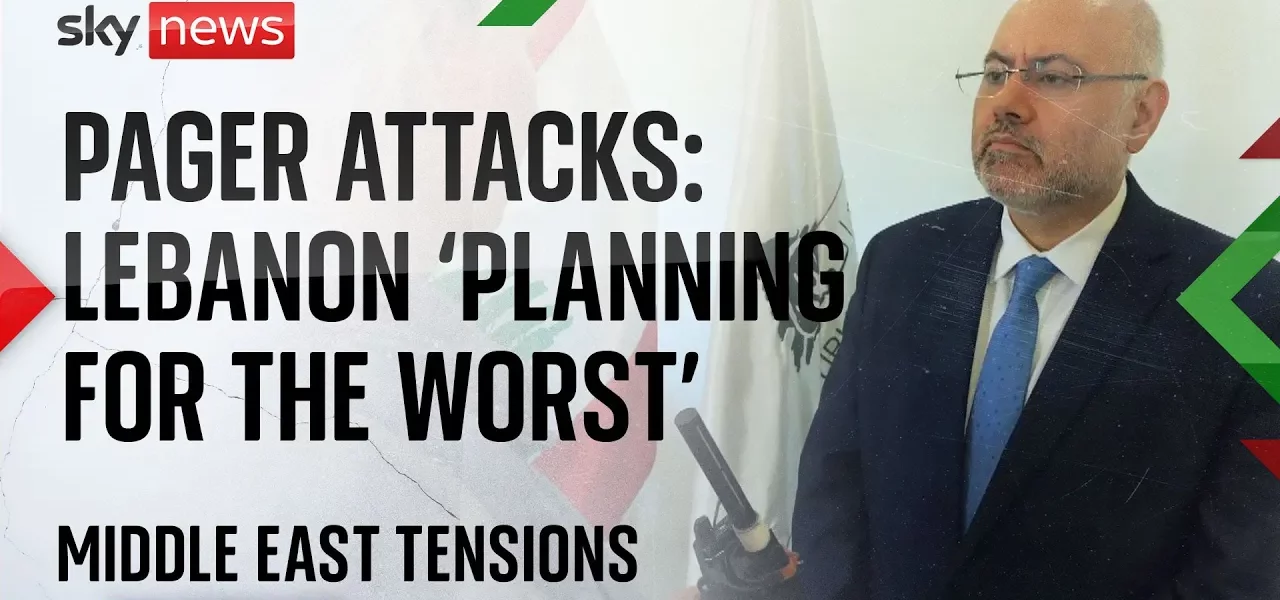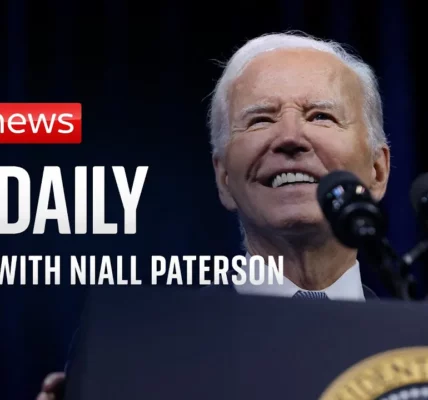Lebanon’s Health Crisis: Emergency Response and Political Implications

The recent health crisis in Lebanon has triggered an emergency response across approximately 90 hospitals, revealing the profound impact of ongoing conflict on civilian casualties and healthcare services. This article delves into the critical updates from the health minister, the current state of the injured, and the broader implications for Lebanon’s political landscape.
Introduction
The health crisis in Lebanon has escalated dramatically, with the health minister reporting alarming statistics of casualties and injuries amid ongoing conflict in the region. The emergency response from hospitals has been tested to its limits as nearly 3,000 individuals have sought medical attention in a matter of hours. This article explores the implications of this crisis, the challenges faced by the healthcare system, and the political ramifications as Lebanon navigates through this tumultuous period.
Current Emergency Situation
The Lebanese health system is currently under severe strain due to an influx of casualties. The health minister has confirmed that approximately 300 individuals are in critical condition, while nearly 3,000 have been reported injured. This unprecedented situation has raised several questions about the preparedness of the healthcare system and the impact of previous crises.
Casualty Statistics
- Total casualties: nearly 3,000
- Critical conditions: approximately 300
- Injuries primarily affecting the face and hands
- Notable demographic impact: children and elderly among the injured
- Healthcare workers affected during the crisis
Health System Challenges
The Lebanese healthcare system is facing multiple challenges, exacerbated by the recent influx of casualties. Key issues include:
- Resource Limitations: The migration of healthcare professionals has left the system understaffed.
- Economic Crisis: Ongoing economic difficulties have hampered the ability of hospitals to respond effectively.
- COVID-19 Aftermath: The healthcare sector is still recovering from the strain of the pandemic.
Impact on the Civilian Population
The casualties reported in Lebanon highlight a tragic consequence of the ongoing conflict. The injuries sustained by civilians, including children, underscore the indiscriminate nature of the violence.
Demographics of the Injured
Victims of this crisis come from various backgrounds, illustrating the widespread impact of violence:
- Children: Two young fatalities reported.
- Elderly individuals: Notable injuries among older adults.
- Healthcare professionals: Injuries sustained by those providing care.
Long-term Consequences
The aftermath of this crisis is likely to have long-lasting effects on the Lebanese population, including:
- Increased psychological trauma among survivors.
- Potential for long-term disabilities due to severe injuries.
- Strain on healthcare resources as the system continues to deal with ongoing emergencies.
Political Ramifications and International Law
The recent events have sparked significant political discourse within Lebanon and internationally. Allegations against Israel regarding the nature of the attacks have intensified tensions in the already volatile region.
Perception of Responsibility
According to the health minister and various reports, the perception among the population is that Israel is primarily responsible for the attack. This belief has fueled anger and indignation among the public:
- Calls for accountability and justice from the international community.
- Increased support for diplomatic efforts to resolve the conflict.
Humanitarian Law Violations
The use of prohibited weapons and the targeting of civilians raise serious concerns about violations of international humanitarian law:
- Reports of white phosphorus use in attacks.
- Targeting of healthcare workers and facilities, which contravenes established laws of war.
- A call for global intervention to uphold humanitarian standards.
Conclusion
The health crisis in Lebanon is not just a medical emergency; it is a reflection of the larger political and humanitarian challenges facing the nation. The overwhelming number of casualties and the strain on the healthcare system highlight urgent needs for international support and intervention. As Lebanon continues to navigate through this crisis, it is crucial for the global community to recognize the severity of the situation and to advocate for a peaceful resolution to the conflict.
Call to Action: It is imperative for readers to stay informed about the developments in Lebanon and to support organizations working towards humanitarian relief efforts. Join the conversation and advocate for change to help those affected by this ongoing crisis.
“`




